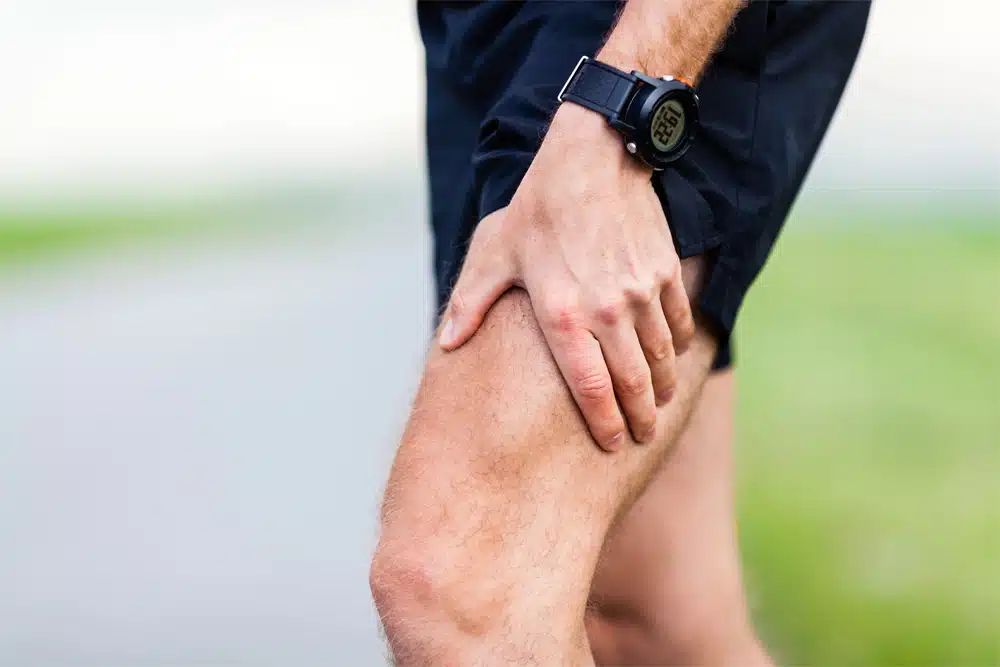Article At A Glance
- Millions of Americans live daily with degenerative arthritis.
- Non-medical approaches can help with arthritis pain management.
- Regular exercise and embracing an anti-inflammatory diet produce the best results.
Data from the National Health Interview Survey (NHIS), published by the Centers for Disease Control and Prevention (CDC), show that around 53.2 million U.S. adults have received an arthritis diagnosis. Of that number, Arthritis.org estimates that up to 40 million of them currently live with the condition.
The two most common types of arthritis—osteoarthritis and rheumatoid arthritis—are unfortunately degenerative. Thus, the symptoms will continue to worsen over time, which makes arthritis pain management highly crucial for patients living with these conditions.
The bulk of the management approaches consist of drug-related treatments. However, healthcare professionals also recommend incorporating natural and non-medical approaches to help alleviate the symptoms of the condition and slow its progression. This post will look at some practical tips and strategies for arthritis pain management.
What Is Osteoarthritis?
Osteoarthritis results from the wear and tear of cartilage. It causes bones to rub together during movement or physical activity. The friction causes inflammation and more damage around the affected joint.
What Is Rheumatoid Arthritis?
Rheumatoid arthritis is an autoimmune condition. In people living with the condition, the immune system attacks healthy joint tissue mistakenly, leading to inflammation and pain.
Practical Tips for Arthritis Pain Management
Some of the top tips for managing arthritis in your everyday life include the following:
Embrace More Exercise
Most healthcare professionals recommend using exercise to manage arthritis pain. Proper exercise supports the joints, reduces stiffness, and improves flexibility. According to the CDC, you should log 150 minutes of physical activity every week.
However, you should only engage in low-impact exercises like walking, tai chi, swimming, water aerobics, and cycling. Discuss your condition with your doctor to devise the ideal exercise plan.
Maintain a Healthy Weight
Excess weight means more stress on weight-bearing joints like your knees and hips. Therefore, shedding a few pounds can help reduce your pain levels and improve your mobility.
The American College of Rheumatology and Arthritis Foundation (ACR/AF) specifically recommends weight loss as a treatment option in overweight or obese individuals living with arthritis. If you fall into this category, talk with your doctor about designing an effective weight loss program.
Embrace a Healthy Diet
One of the best natural remedies for arthritis pain management involves switching to an anti-inflammatory diet rich in vegetables, fresh fruits, and whole foods. Such a diet can help boost your immune system and improve your overall health.
Foods containing Omega-3 fatty acids may also help with arthritic pain relief and chronic pain management by decreasing joint stiffness and pain.
According to a publication from Nutrients MDPI in the National Library of Medicine, vegan and Mediterranean diets can help slow disease activity.
Quit Smoking
A smoking habit contributes to the onset or worsening of many health conditions, including arthritis. The toxins in cigarette smoke affect the connective tissue around your joints and can make arthritis worse.
Quitting the smoking habit also ensures you’re a good candidate for joint replacement surgeries. Doctors recommend these procedures as a treatment for arthritis when the pain becomes too debilitating.
Add Some Natural Supplements to Your Diet
Vitamins, minerals, and supplements can help reduce inflammation and lower arthritis pain. Some of the vitamin options to consider include Vitamins A, B, C, D, E, and K. For minerals, you should add more calcium, magnesium, iron, and zinc to your diet.
Embrace Ergonomic Living
One of the best tips for arthritis pain management and joint pain relief is to find ways to make daily activities easier on your joints through the practice of good ergonomics. Always pay attention to your posture when lifting objects, standing, or sitting.
Changing your gardening and desk job working tools to more ergonomic variants can help alleviate your symptoms or keep you from exacerbating them.
Use Beneficial Assistive Devices
Assistive devices can help take pressure off your joints. These include grabbers, walkers, and canes. Incorporating as many of them into your daily routine can help reduce your arthritis pain.
Use Hot and Cold Therapy Liberally
Heat and cold treatments are highly effective in managing arthritis pain and inflammation.
Consider taking longer, warm showers or baths in the morning for heat treatments. You can also use an electric blanket overnight to reduce discomfort. This can help loosen your stiff joints.
Cold treatments work great for relieving joint pain, inflammation, and swelling. Wrap a bag of frozen vegetables or a gel ice pack in a towel and place it around the site of your joint pain for fast relief.
Get Adequate Sleep
Your body becomes better equipped to manage pain if you rest well. Sleeping the widely recommended seven to eight hours every night is a good tip for arthritis pain management.
To increase your chances of reaching this milestone, establish a relaxing bedtime routine and a regular sleep schedule.
Reduce the Level of Physical Exertion on Your Joints
Pay more attention to how you move around the house and at work. Use the elevator or escalator if climbing stairs causes you pain. Avoid kneeling, bending, or lifting objects frequently.
Get Expert Guidance From an Orthopedic Physical Therapist
For more personalized guidance on arthritis pain management, rheumatoid arthritis care, and osteoarthritis treatment, you need to work with a qualified orthopedic physical therapist.
Orthopedic Specialists serve patients in Elmhurst, IL, and the surrounding areas. Call (630) 782-9600 to schedule a consultation.
Key Takeaways
- Regular exercise can help with arthritis pain management by reducing inflammation and increasing flexibility.
- Losing weight can reduce the strain on the joints.
- It’s best to get personalized guidance from a qualified orthopedic physical therapist.
References
- Center for Disease Control and Prevention: Arthritis Related Statistics
- Arthritis.org: Arthritis by the Numbers
- Center for Disease Control and Prevention: Exercise to Ease Arthritis Pain

